About Hearing
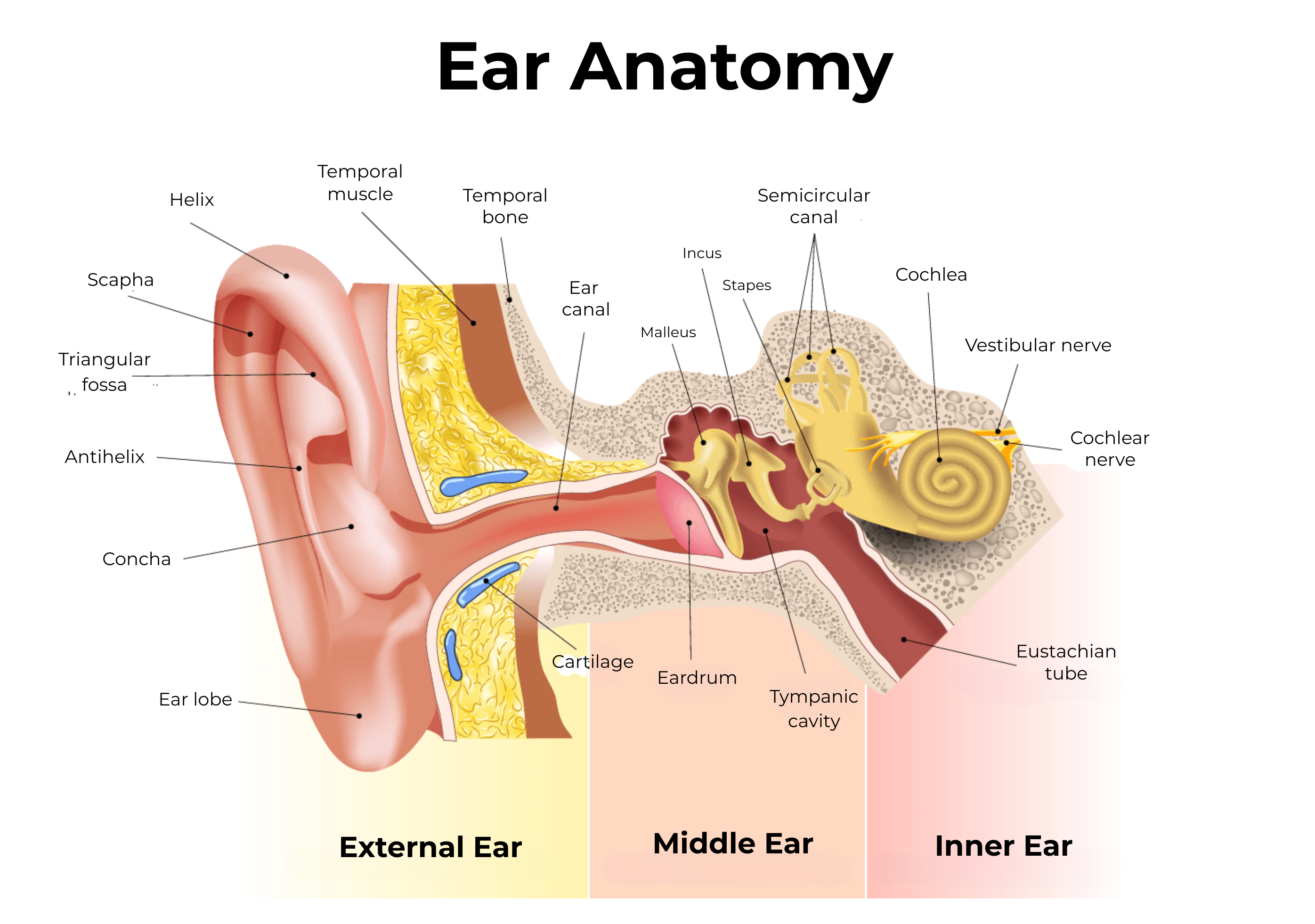
Hearing Analyzer
The ear is the organ responsible for hearing and balance. Anatomically, it is divided into three regions:
- Outer ear – consists of the auricle and external auditory canal. It is separated from the middle ear by the tympanic membrane.
- Middle ear – an air-filled cavity located within the temporal bone, lined with mucosa. It includes:
- the tympanic cavity,
- mastoid cells,
- the Eustachian tube.
- Inner ear – situated within the temporal bone and composed of two anatomically and functionally distinct sections:
- The cochlea, which contains the auditory receptors.
- The posterior labyrinth and semicircular canals, responsible for balance.
The inner ear consists of a bony labyrinth and a membranous labyrinth contained within it.
What is Hearing Loss?
Hearing loss is the reduction in hearing ability due to problems with sound perception or transmission.
The main types of hearing loss:
- Conductive hearing loss – associated with issues in the outer or middle ear.
- Sensorineural hearing loss – caused by dysfunctions in the inner ear.
- Mixed hearing loss – a combination of both.
Causes of hearing loss vary. Some can be treated with medication or surgery, while others require hearing aids.
Two main factors contributing to the global rise in hearing loss:
- Increased exposure to loud noise at work, in the environment, and during leisure activities.
- Age-related hearing loss, combined with demographic changes due to an aging population.
Hearing loss can result from problems in the outer, middle, or inner ear, and the causes differ for each.
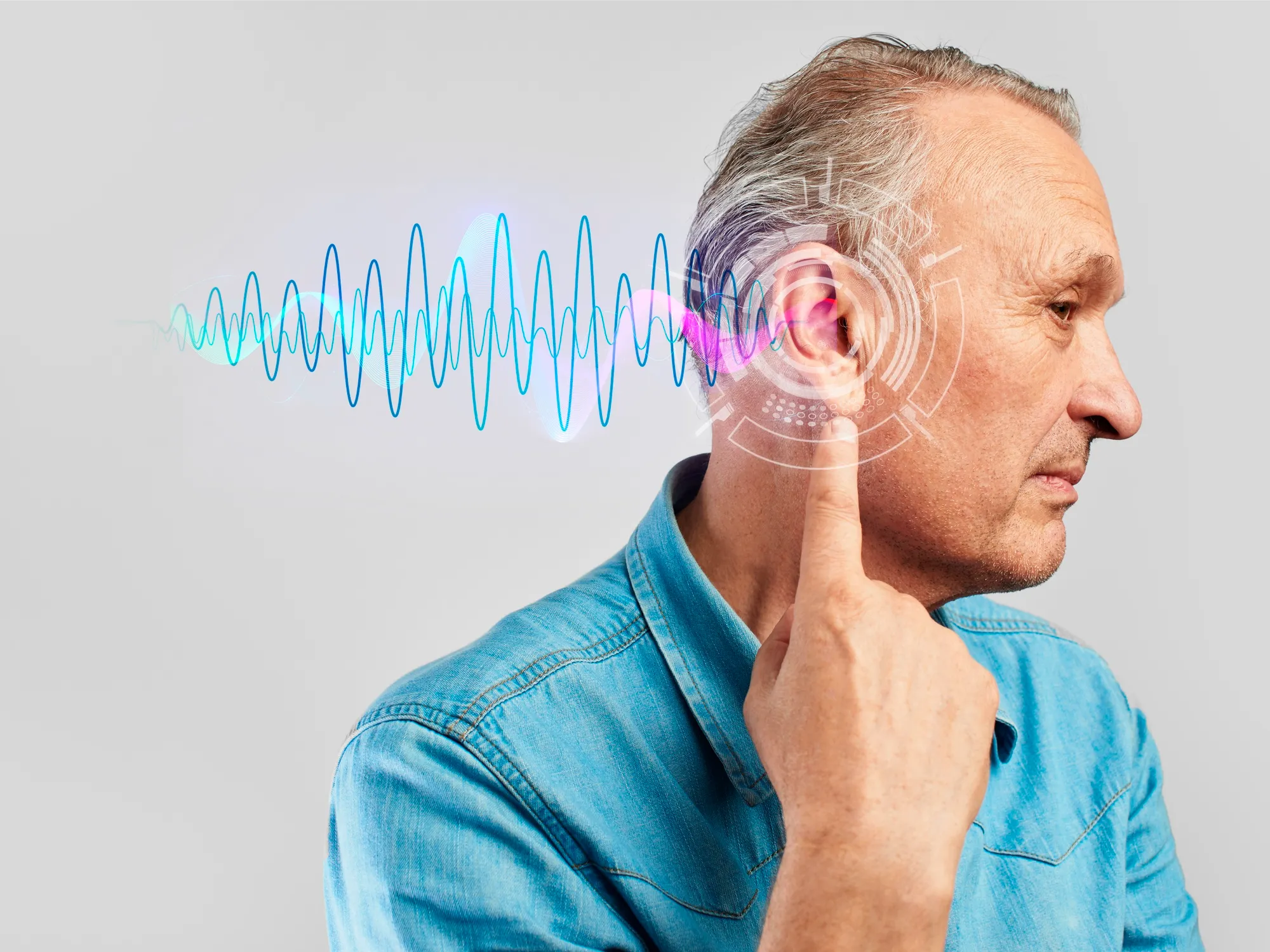

I suspect I have hearing loss. What should I do next?
By visiting this website, you have already taken the first important step in understanding and addressing hearing loss. The next step is to consult a professional audiologist.
An audiologist can perform a series of painless tests to determine whether you have hearing loss. If necessary, they will discuss treatment options and answer any questions you may have.
It’s important to see a doctor as soon as possible, especially if your hearing loss happened suddenly!
Our specialists can help identify the cause of your hearing problem and recommend medical treatment, surgery, or hearing aids depending on your condition.
When should you see a hearing specialist?
- Do you struggle to follow conversations with multiple people?
- Do others sound like they are mumbling or talking through their nose?
- Do you find it hard to hear in noisy environments like restaurants, malls, or meetings?
- Do you have trouble understanding children’s or women’s voices?
- Do you need to increase the volume on the TV or radio?
- Do you experience ringing in the ears (tinnitus)?
- Do you find yourself reading lips or closely watching people’s faces to understand speech?
- Do you feel stressed or exhausted trying to follow conversations?
- Do you get frustrated with others because you can’t hear them properly?
- Have you started avoiding social gatherings because of your hearing difficulties?
- Do you have a family history of hearing loss?
- Are you taking medications that can affect hearing?
- Do you have diabetes, heart disease, circulation problems, or thyroid issues?
- Have you been exposed to loud noise for long periods or experienced a sudden loud noise (explosion, fireworks, etc.)?
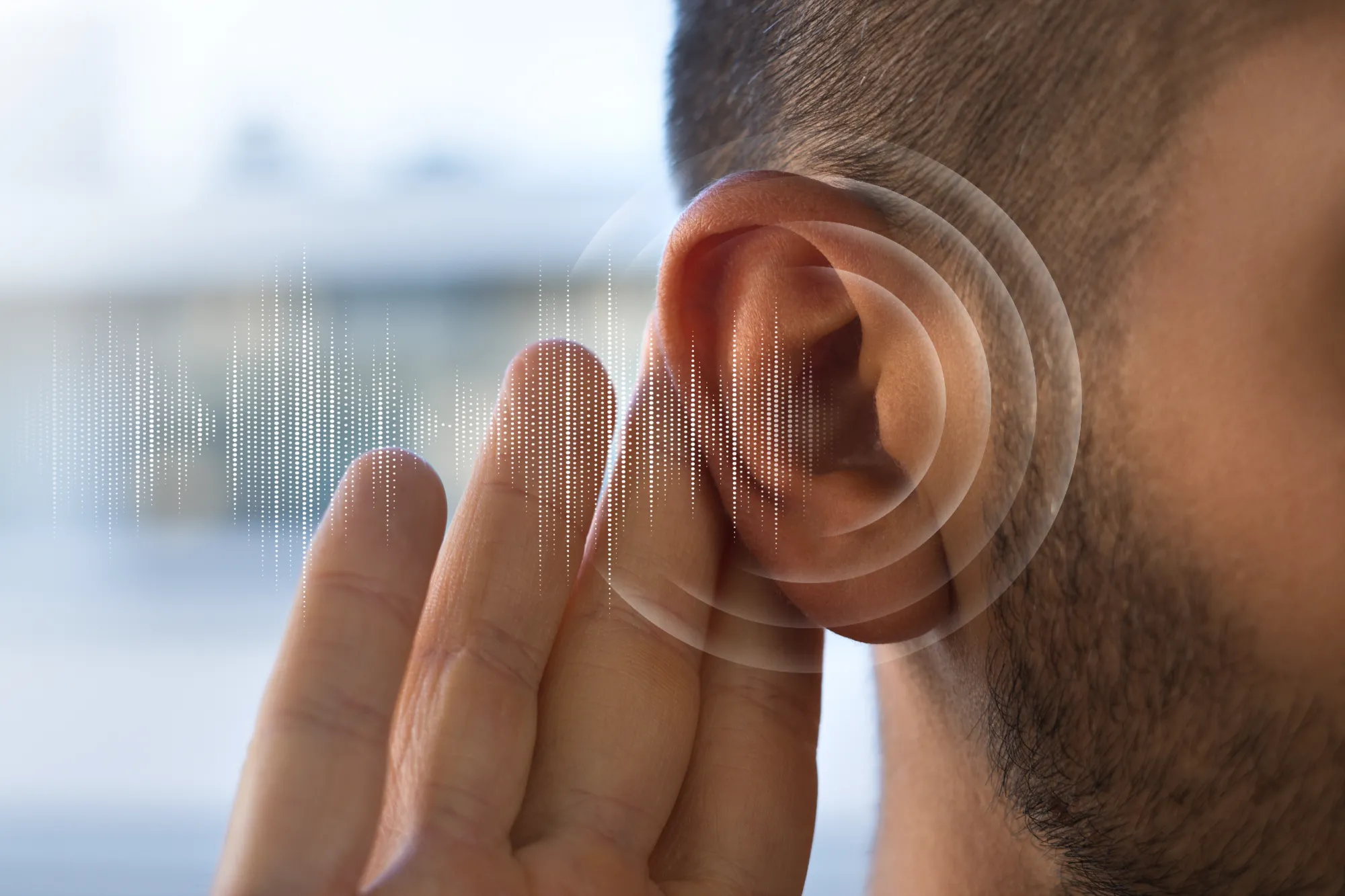
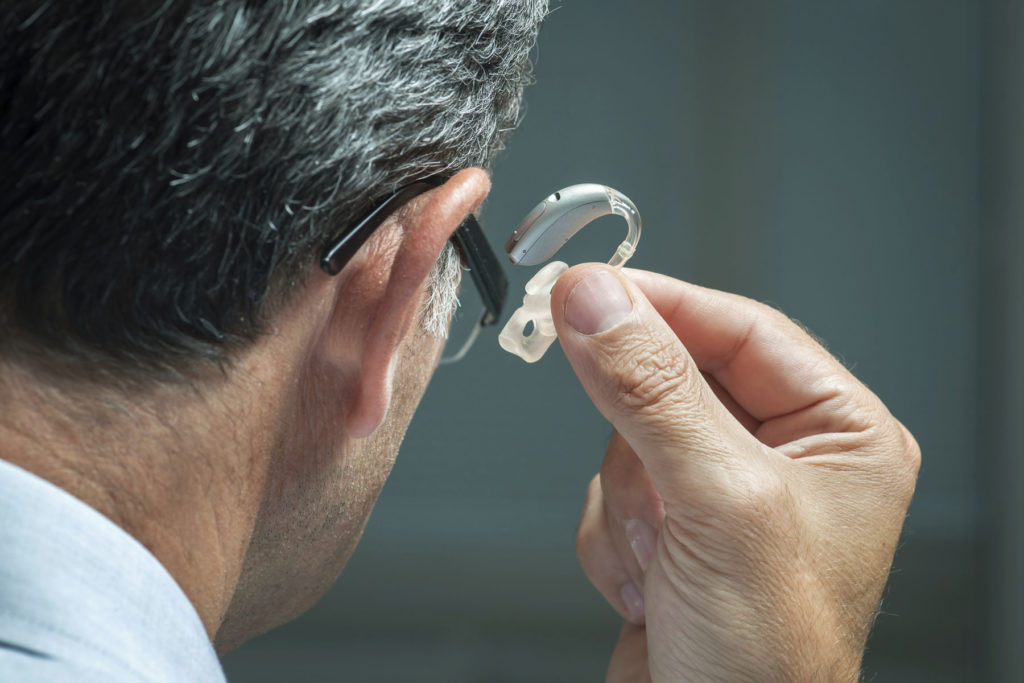
Are there medications or surgical procedures that can improve my hearing?
For most adults, hearing loss can only be effectively managed with properly selected and adjusted hearing aids.
In some cases, medical or surgical treatment is possible, especially if hearing loss is caused by:
- earwax blockage in the ear canal;
- outer ear infections (otitis externa);
- middle ear dysfunctions.
A visit to an ENT specialist or audiologist will help determine the best course of action.
Does hearing loss cause pain?
Hearing loss does not cause physical pain, but it can significantly impact quality of life.
In severe cases, it may lead to:
- constant ringing in the ears (tinnitus);
- loss of spatial coordination;
- difficulty concentrating;
- social isolation.
Regardless of the cause (genetics, inflammation, organ dysfunctions), even partial hearing loss can affect mental well-being, leading to insecurity, irritability, and feelings of inferiority.


Degrees of Hearing Loss:
- Normal hearing: 0 – 20 dB
- Mild hearing loss: 21 – 40 dB
- Moderate hearing loss: 41 – 70 dB
- Severe hearing loss: 71 – 90 dB
- Profound hearing loss: 91 – 120 dB
- Total deafness (cochlear deafness): over 120 dB
How to Prevent Hearing Loss?
- Vaccinating children against childhood diseases, including measles, meningitis, mumps, and rubella.
- Vaccinating adolescent girls and women of childbearing age against rubella before pregnancy.
- Informing pregnant women about sexually transmitted infections and their treatment.
- Genetic screening (GeneScreen) for future parents to identify hereditary mutations associated with hearing loss.
- Improving prenatal, birth, and postnatal medical care.
- Using ototoxic medications with caution and only under medical supervision, ensuring proper dosage.
- Avoiding prolonged exposure to loud noise.
- Undergoing a hearing test every six months.
- Newborn hearing screening within the first week after birth.
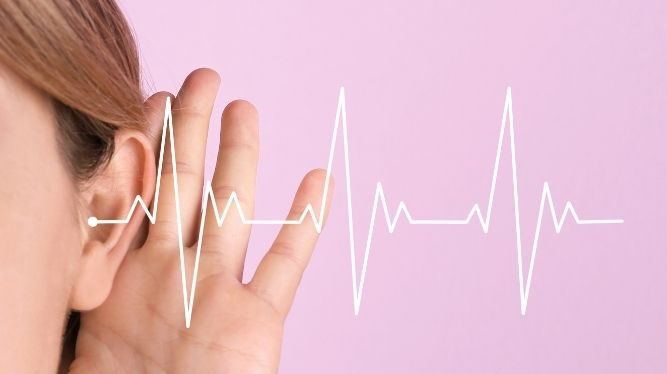

Hearing Testing
Hearing testing is essential in ENT practice for an accurate diagnosis. By analyzing an audiogram, a doctor or audiologist can assess both sound perception and speech comprehension.
There is a significant difference between hearing and understanding speech, which is why regular hearing tests are important, not only when problems arise but whenever hearing feels different.
The diagnosis of hearing loss includes:
- an ear examination,
- a quantitative acoustic evaluation.
Additional tests help determine the location, nature, and type of hearing loss:
- Rinne and Weber tests,
- pure-tone and speech audiometry,
- speech discrimination tests,
- tympanometry,
- otoacoustic emissions (OAE),
- auditory brainstem responses (AABR).
What is Audiometry?
An audiogram is a graphical representation of hearing sensitivity across different frequencies, recording the hearing threshold and pain threshold for each ear, as well as the auditory field between these extremes, expressed in decibels SPL.
Audiometry is classified based on patient participation:
- Subjective audiometry (pure-tone and speech audiometry).
- Objective audiometry (impedance tests, otoacoustic emissions).
Pure-tone threshold audiometry (ATL) is a subjective hearing evaluation method used to determine the lowest intensity of sound a patient can detect. This test measures hearing using two pathways: air conduction and bone conduction.
Speech audiometry (AV) is a subjective audiometric test that assesses the patient’s ability to recognize and understand words, providing a comprehensive evaluation of auditory function.
What is Tinnitus?
Tinnitus is the perception of abnormal sounds in one or both ears without any external noise source. It is a symptom, not a disease, and its causes vary.
Patients may experience tinnitus in different forms:
- rustling,
- clicking,
- whistling,
- ticking,
- ringing, and other noises.
The noise may feel like it is coming from inside or outside the ear, ranging from low to high intensity, and in some cases, it may completely mask external sounds.
When tinnitus affects both ears, it is often linked to sensorineural hearing loss and can be a warning sign of hearing impairment.
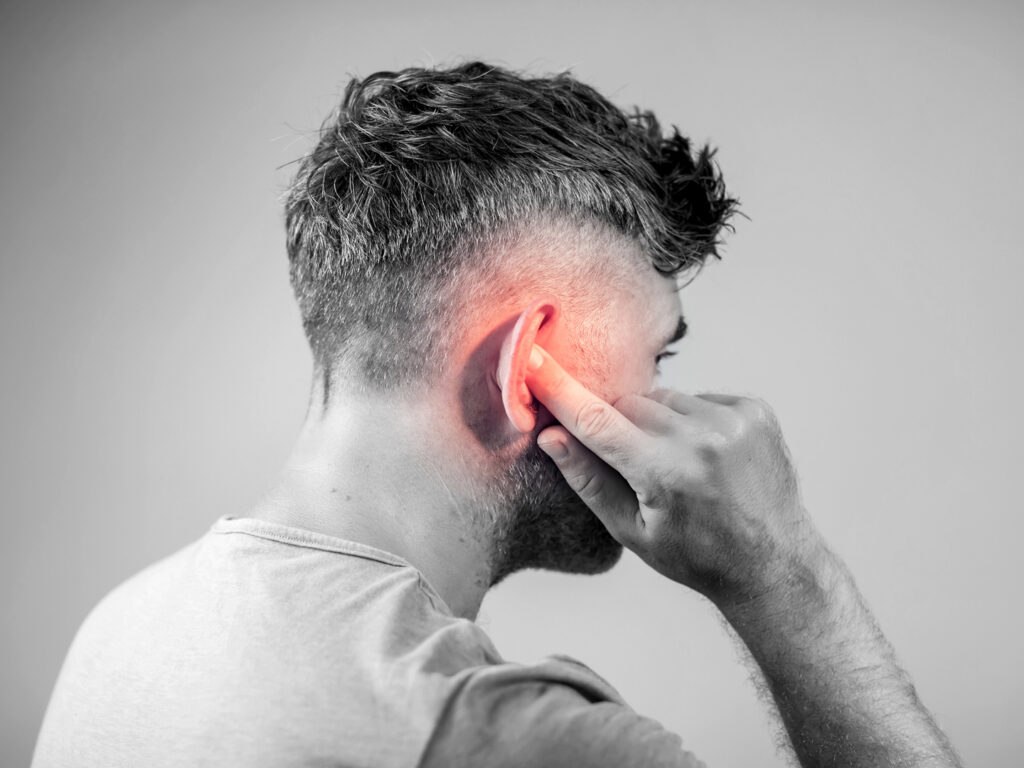
What Causes Tinnitus?
Tinnitus can cause discomfort, such as sensitivity to loud sounds, leading to emotional distress. Studies in the US have shown a strong connection between tinnitus and anxiety, depression, and sleep disorders.
For tinnitus patients, quality of life can be significantly affected, causing irritability, loss of focus, and memory issues.
Tinnitus diagnosis involves:
- a medical history review,
- a consultation with a specialist,
- special tests such as audiometry, CT scans, or MRI scans.
Preventive measures for tinnitus:
- Avoiding the use of cotton swabs, as they push earwax deeper toward the eardrum.
- Wearing ear protection at noisy workplaces, concerts, or sporting events.
- Maintaining cardiovascular health through regular physical activity.
If tinnitus persists and becomes bothersome, solutions may include:
- A hearing aid with a tinnitus masker feature.
- Specially designed audio recordings that help mask tinnitus sounds.
